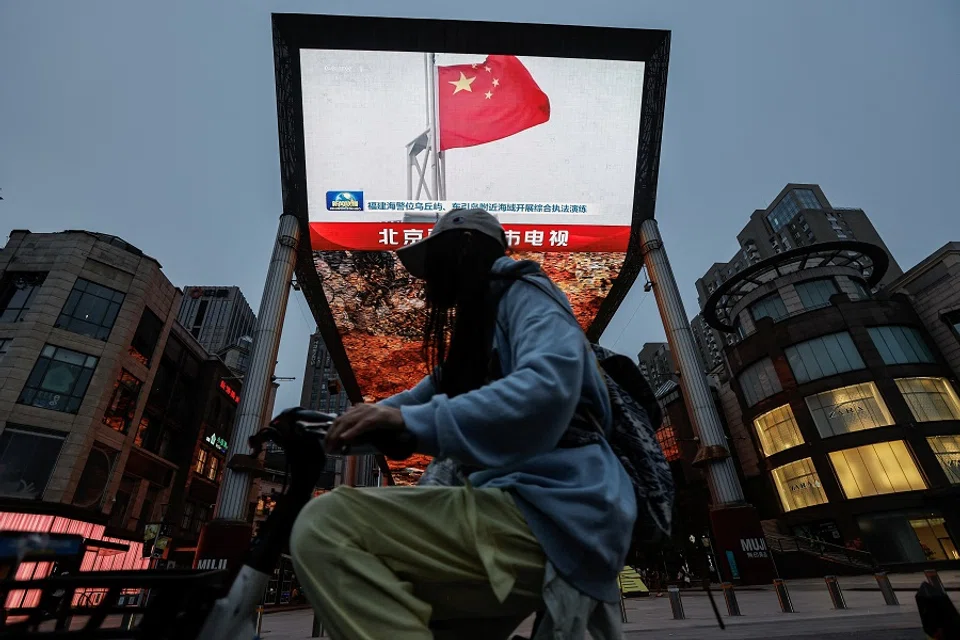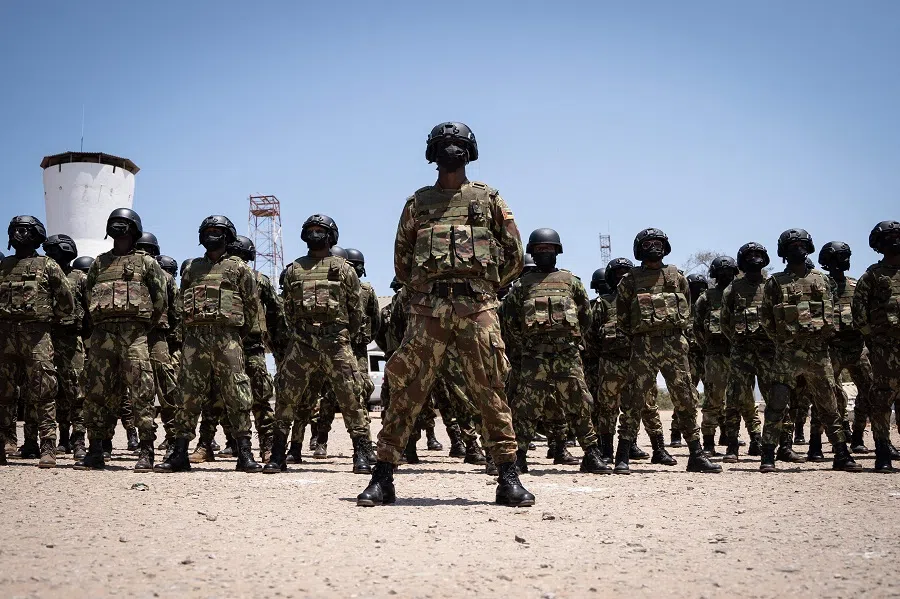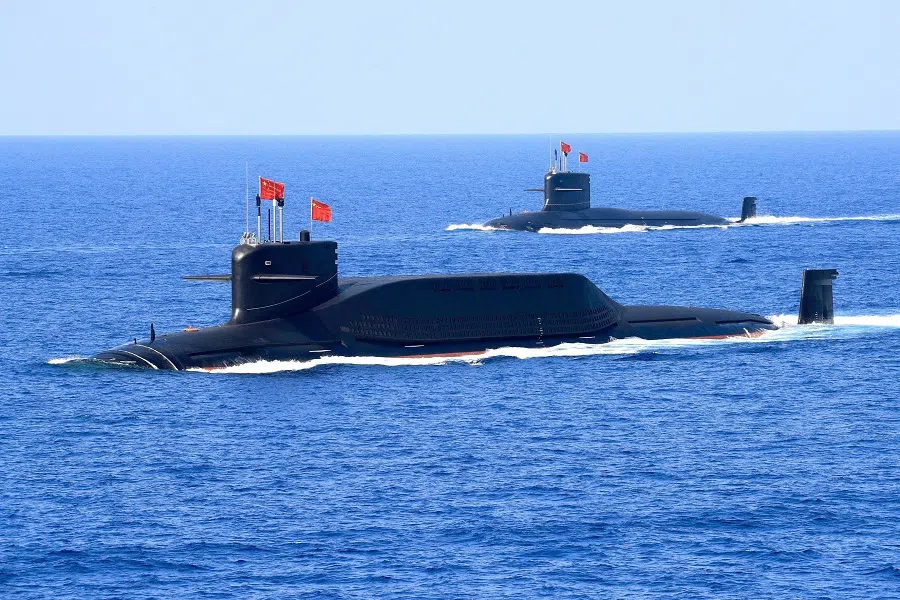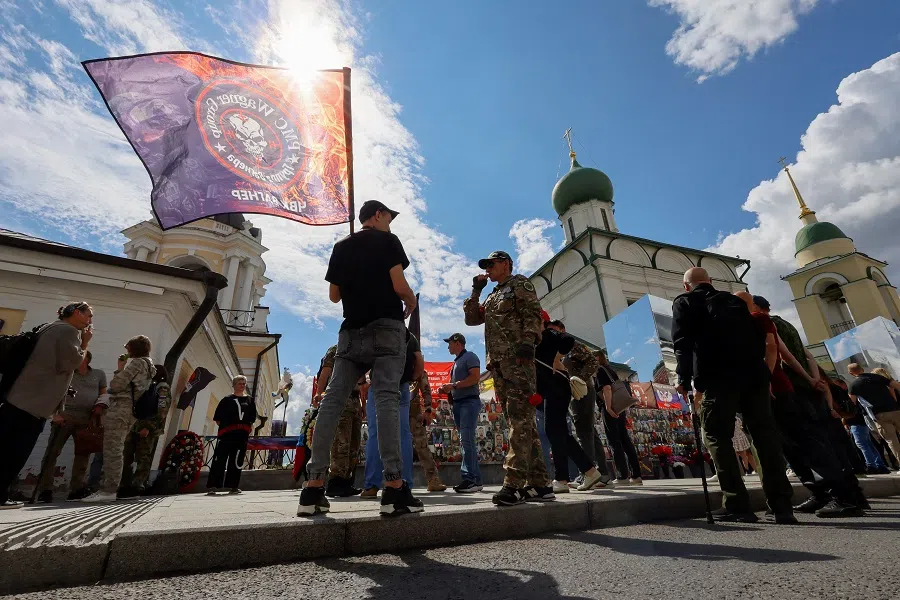China’s cautious expansion of military diplomacy in Africa
China’s military diplomacy is advancing in Africa, highlighted by an August trilateral counterterrorism drill with Tanzania and Mozambique. Beijing is cautiously tempering fears of a Chinese “great game” in Africa, says academic Alessandro Arduino.

Chinese diplomats are moving swiftly from Ukraine to Gaza, seeking a path to peace.
While Beijing is struggling to get traction in the world crisis quagmires, China’s military diplomacy is gaining ground in Africa. The launch of the trilateral counterterrorism drill with Tanzania and Mozambique this August underscores Beijing’s strategy. These joint exercises are not just about promoting military hardware sales and integration; they are a clear message that China is positioning itself not only as an economic powerhouse but also as a security one.
According to China’s defence ministry, the military drills will cover counterterrorism operations, anti-piracy measures, joint port defence, boarding, search and seizure exercises, and joint maritime patrols. These exercises are designed to deliver not only military training but also to strengthen political ties.
Strengthening local security actors’ capabilities
A pillar of international relations, military diplomacy is part of a country’s strategy for enhancing regional and bilateral relations. While arms transfers are regarded as a leading instrument in military diplomacy and overall foreign policy, forging long-term military commitments with significant ramifications, especially in the case of technologically advanced weapons, the Chinese military diplomacy’s rise in Africa differs.
In the past, China’s foreign policy formulation and implementation were heavily influenced by the PLA, which promoted arms sales to achieve strategic objectives and counter adversaries doing the same. Now, however, Beijing is seeking new tools to address the highly volatile security situation in the region.
... China is strengthening its “banking diplomacy” efforts with a renewed security focus aimed at strengthening local security actors’ capabilities.

As mercenaries are sowing fear from Libya to Sudan, and Russia’s Wagner group is tightening its grip on the Sahel region, China is strengthening its “banking diplomacy” efforts with a renewed security focus aimed at strengthening local security actors’ capabilities. The Peace Unity-2024 exercise, ongoing until mid-August, is anchored by a Chinese-built training centre in Tanzania, showcasing China’s growing military influence in the country and Beijing’s intention to expand it far from Dar es Salaam.
The West, notably France, has lost strategic positions in the fight against terrorist groups in Africa and even a minor Chinese military presence will ignite anxieties and fear of a Chinese “great game” of geopolitics in Africa.
Raising alarm in the West
At a time when the PLA’s counter-terrorism joint drills with Belarus’s army near NATO’s border raised eyebrows in the EU, the presence of Chinese soldiers in Africa is set to make waves in European security circles.
The West, notably France, has lost strategic positions in the fight against terrorist groups in Africa and even a minor Chinese military presence will ignite anxieties and fear of a Chinese “great game” of geopolitics in Africa. Nevertheless, despite the PLA Navy’s capability to conduct maritime security operations in East Africa, particularly against piracy — similar to their efforts in West Africa a decade ago — there are doubts about the PLA’s ability to sustain counterterrorism operations in the region.
The limited resources and launch pad at the Chinese military base in Djibouti may not be sufficient to provide the necessary boots on the ground for such extensive operations even if Beijing is willing to adapt its decade-old non-interference policy. As a result, promoting the professionalisation of local security actors has gained strong support within Chinese security circles.
Beijing is steadily eroding Russia’s historical dominance in the region while ensuring that all African countries remain satisfied with China’s presence...
Beijing navigating with caution
Meanwhile, the PLA Navy during the joint drills, is set to demonstrate its capabilities through anti-piracy training, a mission it has effectively undertaken since the rise of Somali pirates, as the piracy threat has now shifted from West Africa to East Africa, where seafarers and vessels face hijacking threats.

This does not mean that Beijing is uninterested in expanding its military equipment transfers in the region; rather, it is proceeding cautiously. Beijing is steadily eroding Russia’s historical dominance in the region while ensuring that all African countries remain satisfied with China’s presence, avoiding getting entangled in local disputes as it happened in the past. Like the sale of armed drones to the Democratic Republic of Congo, which caused tension with Rwanda.
According to the Stockholm International Peace Research Institute (SIPRI), a think tank specialising in armaments, Russia and the US were the leading suppliers of arms to Africa between 2018 and 2022, accounting for 40% and 16% of the continent’s major arms imports, respectively. China ranked third with 9.8%, followed by France at 7.6%.
Despite this, sub-Saharan Africa received significant deliveries of Chinese arms between 2019 and 2023, thanks to China’s favourable prices and abundant financing opportunities. This has allowed China to steadily surpass Russia’s historically prominent position and expand into Francophone Africa.
Slow and steady
China’s trilateral military drill now showcases Beijing’s willingness to step into a high-stakes game, increasing its security efforts in Africa, with special reference to Mozambique’s oil-rich and insurgent-marred regions.
In the coming years, as in the past, the majority of Chinese soldiers in Africa will still wear the blue helmets of UN peacekeepers.

In a time when Russian mercenaries from the Wagner group took heavy losses in the Sahel at the hand of Tuareg insurgents in Mali and previously suffered a crippling defeat in Mozambique against Islamic State-backed fighters in the oil-rich Cabo Delgado region, Beijing stands at a crossroad.
Faced with growing instability and threats to its workers and infrastructure, Beijing is stepping up military diplomacy as a tool to advance security and stability. That said, maritime security cooperation seems a safe bet for Beijing, but putting boots on the ground is another story.
In the near future, it looks unlikely that China will expand the PLA’s role from tactical adviser to what private military contractors ironically call “front-line training”, meaning taking an active role in counterterrorism operations. Nor does it seem poised to develop its own private security sector akin to Russia’s Wagner group, which employs heavily armed mercenaries to crush insurgent threats, often with little regard for human rights or civilian casualties.
In the coming years, as in the past, the majority of Chinese soldiers in Africa will still wear the blue helmets of UN peacekeepers.





